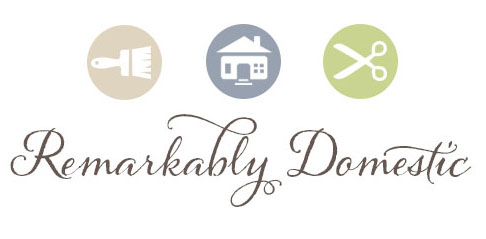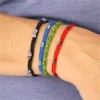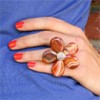I’m fairly certain I’m not alone in often having trouble getting my second grader to tell me about his day. Usually, it goes something like this:
Me: “So, how was your day?”
Second Grader: “Fine.”
Me: “What did you do?”
SG: “Um… nothing.”
Me: “NOTHING? You did nothing at school?”
SG: “Well, not nothing, but… I don’t remember.”
Me: “You don’t remember anything? You just spent seven hours at school and you don’t remember anything you did?”
SG: “No.”
Me: “Well, what did you do in math?”
SG: “Some math problems.”
Me: “What kind of problems?”
SG: “Um… I don’t remember.”
And it goes on.
Mostly, I think he’s just tired from his day and doesn’t want to have to put in the effort to remember. So I’ve had to figure out a way to make him want to tell about his day, which, in our house, will inevitably involve a game. If it’s a game, usually the second grader is in.
There are plenty of games/books/suggestions out there for facilitating dinner conversation with kids, but often they involve asking questions like, “If you could be any animal, what would you be?” And those are fun questions and certainly valuable, but really, I just want to know what the hell he did when he was away from me that day. So we’ve implemented several different dinner table rituals that the kids now love, and the end result is we get to learn a little more about what happens at school.
I hope these games are as helpful for you as they have been for us!
- Highs and Lows. This is a pretty traditional one, but it works well. Everyone goes around the table and tells one high and one low from the day—that is, one thing that was great and one thing that was kind of a bummer. I only require that it be something that happened at school. If it happens to be a day when they get to play on the computer or on Wii, I don’t want to get “I bought a new puffle on Club Penguin!” or “I fell in the lava on Super Mario Brothers!”
- Two Truths and a Lie. This is our absolute favorite. It’s a modified version of the ice breaker game, where you make three declarations—two of them are true, and one of them is a lie. Then, your listeners have to guess which one is the lie. Usually, we get something like this:
“I played soccer at recess;
I got all my spelling words right on the spell check;
Reading was really long today.”
Then, everyone gets to guess which one of these isn’t true. The best part is that then you have topics to discuss and things to question. ”Oh, reading wasn’t really long today? Was it short? Why, did you have an assembly to go to? Who else played soccer?” It’s also easier to get answers from their day at school, since they have to give you events that you don’t know about in order to trick you with their lie.
- Do Over. Here you choose one thing during your day to do over. It can be a super fun thing, so you’d want to relive it, or it can be something that didn’t go very well that you’d want to change. You then explain what was so fun that you’d want it to happen again, or what you’d do differently if you had the chance.
- Daily Event Charades. Pretty much what it sounds like, here you pantomime one thing that you did or that happened to you during the day. You can do this at dinner, but it’s even more fun if you do it once you leave the table, since then you can get some crazy pantomimes. Everyone guesses what is being acted out, and then you have something to ask more questions about.
Do you have any tried and true ways to get your kids talking? Share them in the comments!


















Have you been reading my mind? This is so timely. I’ve got to implement these like TODAY! About as creative as I’ve gotten is asking “who did you sit next to at lunch today?” Yeah – I know, creative, huh?!